The content of the article
Many of us buy dry ginger powder to make the dishes more savory and add a pleasant spicy note to the food, but experienced chefs know that the real full flavor of ginger is revealed only if you use its root. Any seasoning remains tasty and fragrant for a long time, if you know how to handle it. Here are some secrets to keep your ginger root fresh and fragrant at home.
What are the benefits of ginger root over powder
The temptation to buy ready-made powder seasoning at the grocery is always great. Ginger is conveniently and compactly packaged; as a rule, it is well processed from mold, quality-dried in production conditions and chopped. It is enough to cut the packaging and sprinkle the dish to enrich it with a familiar aroma. In addition, ginger powder usually costs much less than a natural product, which allows you to save money. What is the catch?
Whole root ginger retains its juiciness longer, which means a characteristic burning sharpness with interesting notes that disappear when storing ginger in dry ground form. From ground ginger all its healing oils and vitamins disappear faster. Buying a natural root, you can be sure that there are no extraneous impurities in it that can be used in powders to reduce the cost of the product. You will buy fresh, dried root, which is likely to be clean inside without any treatments or chemical additives. In addition, from natural slices of ginger, excellent drinks, stews and desserts are obtained, which cannot be achieved using a ground product.
In the end, spicy fresh ginger is consumed very economically, so that one root lasts longer, and you do not feel the extra cost. If necessary, the root can be used in juicy form or dried on its own and chopped - this is not at all difficult.
How to choose a good ginger root
When buying ginger, you need to pay attention to several signs of its freshness and quality:
- The peel should be whole. In a young root, this is a thin and delicate film, as in carrots, and the looted root has a denser and more dried peel. It is better to choose young ginger, but mature ginger is quite useful, it just loses its aromatic properties a little faster. The main thing is that the peel is not wrinkled and rough. The root should not ooze, have damage or exposed areas - then it will be wet and fresh longer.
- No dark spots, mildew or other suspicious inclusions are allowed. Good ginger will be smooth and plain. Due to the bactericidal properties of ginger, various infections rarely infect it. But in cases where spoiled foods lie in the neighborhood, for example, affected cabbage or tangerines, infection can occur.
- Density. Fresh ginger will be quite heavy and hard due to the juice. If the spine seems hollow, empty or "cotton" - discard such a product.
- The color inside should be bright yellow, this will mean that there are more useful components in ginger. A pale root will be less useful.
In stores today they sell fairly fresh imported ginger at affordable prices. If you buy seasoning from herbalists, only contact trusted sellers.
If ginger is stored in the cellar, it is better to sprinkle it with earth or wrap it in paper.
How to store root ginger at home
Young ginger is stored in the refrigerator.In order to prevent the smell of the product from being transmitted to other foods, and in order to maintain an optimal level of moisture, ginger is packaged in cling film, polyethylene or zipper bags. This is done carefully, air is released from the bag so that the root does not oxidize. Better yet, wrap the ginger with a paper towel before placing it in the bag to blot the juice that has come out. Ginger is stored in a peel, which is its natural defense, like potatoes or carrots.
Ideal conditions for storing root ginger are low plus temperature, a compartment for vegetables is best. In such conditions, the root can easily lie for 3-4 weeks. For longer storage, it is best to keep the product in the freezer or preserve it.
Experts say that when frozen, ginger loses some of its healing properties, but sometimes it is this way of storage that prolongs its “life”. For harvesting, ginger is rubbed on a coarse grater or cut into slices, julienne - as convenient, depending on how you intend to use the product. First, you need to put it in a thin layer in a container and let each individual piece freeze. After this, the raw materials can be poured into a more compact container and stored in a bag or sealed can for up to six months, or even 8 months in a freezer. Remove ginger for cooking with clean, dry hands without breaking the existing microenvironment.
How to dry ginger yourself
To be sure of the seasoning quality, get a young ginger root - and extend its shelf life by drying it at home. To do this, ginger is peeled by scraping. If the root is old and the crust is hard - it will have to be peeled off, like with potatoes. After that, there are two options: ginger chips or ginger chips. Cut the root into thin slices or rub onto a coarse grater, spread evenly over the baking sheet jammed with culinary paper and send it to dry in the oven. The oven is heated to 60 degrees, the door is not completely covered. Periodically, the product is stirred and redistributed for even drying. You can use an electric dryer. Notice the process for about 2-3 hours.
"Live" conservation of honey
To get a useful drug for colds, for the treatment of joints, nausea, poisoning and malaise, ginger can immediately pour honey. These healing products enhance each other's effect and last longer. For the drug, peeled ginger is rubbed into shavings. Next, honey is added to the honey melted in a water bath, mixing thoroughly. Proportions to taste. You can mix 1: 1 or 1.5-2 parts of ginger per 1 part of honey, such a preparation will be less sweet, and it can be used not only for medical masks, ointments and drinks, but also added to vegetable dishes and sauces. You can enhance the sweetness later in the process of cooking the desired dish or potion, adding more honey or berries.
In addition, ginger is pickled, as for sushi - with fruit vinegar, or salted and stored in jars under the lids in the refrigerator or rolled up in the pantry.
Video: how to store ginger

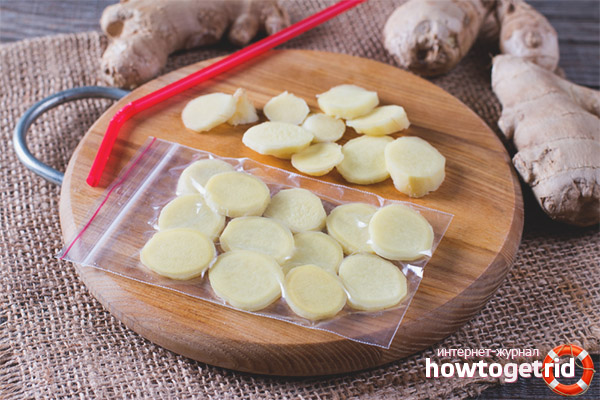
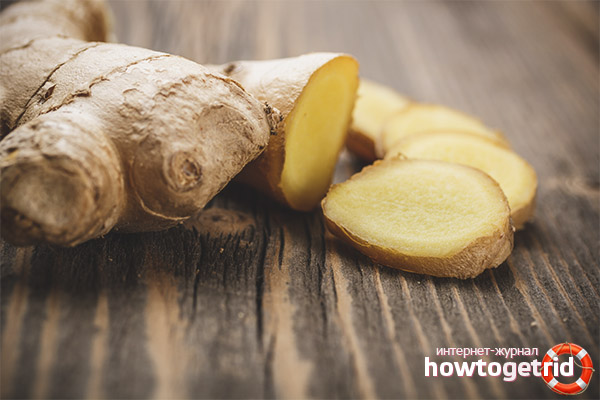
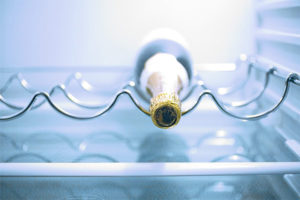
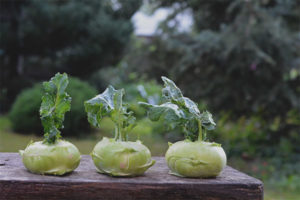
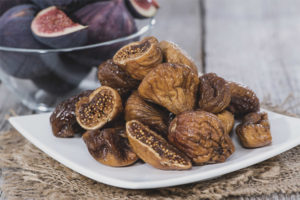
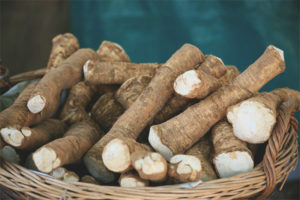
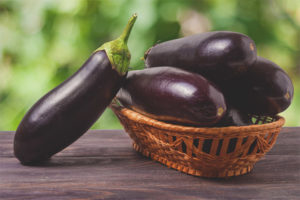
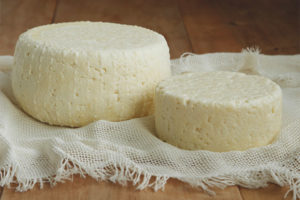
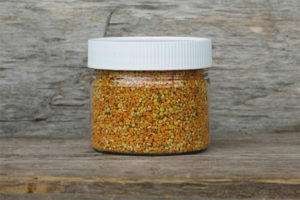
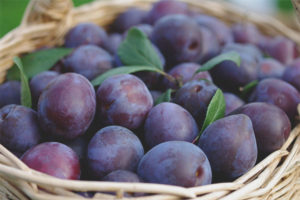
Submit